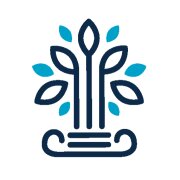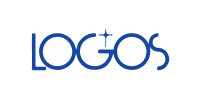Best Securities Lawyers in Seoul
Share your needs with us, get contacted by law firms.
Free. Takes 2 min.
List of the best lawyers in Seoul, South Korea
About Securities Law in Seoul, South Korea:
Securities law in Seoul, South Korea, governs the issuance, trading, and regulation of financial instruments such as stocks, bonds, and derivatives. The Financial Services Commission (FSC) is the main regulatory body overseeing the securities market in South Korea. Securities laws aim to protect investors, ensure fair and transparent trading practices, and maintain the integrity of the financial markets.
Why You May Need a Lawyer:
You may need a lawyer for securities-related matters in Seoul, South Korea, if you are facing regulatory investigations, enforcement actions, or civil lawsuits related to securities fraud, insider trading, or other violations. A lawyer can help you navigate complex legal issues, defend your rights, and represent your interests in dealings with regulatory authorities, courts, or other parties involved in securities transactions.
Local Laws Overview:
Some key aspects of local laws relevant to securities in Seoul, South Korea, include the Securities and Exchange Act, which governs the issuance and trading of securities, and the Financial Investment Services and Capital Markets Act, which regulates investment funds, financial institutions, and capital markets. Foreign investors may also need to comply with regulations set by the Foreign Exchange Transaction Act when investing in South Korean securities.
Frequently Asked Questions:
1. What are the main types of securities regulated in Seoul, South Korea?
In Seoul, South Korea, securities law regulates stocks, bonds, derivatives, and other financial instruments traded in the securities market.
2. How can I verify the legitimacy of a securities offering in South Korea?
You can verify the legitimacy of a securities offering in South Korea by checking with the Financial Services Commission or consulting with a legal advisor specializing in securities law.
3. What are the penalties for securities fraud in South Korea?
Penalties for securities fraud in South Korea may include fines, imprisonment, and civil liabilities for damages caused to investors or other parties affected by fraudulent activities.
4. Can foreign investors trade securities in South Korea?
Yes, foreign investors can trade securities in South Korea, but they may need to comply with specific regulations and reporting requirements set by the Financial Services Commission and other regulatory bodies.
5. How can I resolve disputes related to securities transactions in South Korea?
You can resolve disputes related to securities transactions in South Korea through negotiation, mediation, arbitration, or litigation in courts, depending on the nature of the dispute and the parties involved.
6. What are the disclosure requirements for companies issuing securities in South Korea?
Companies issuing securities in South Korea are required to disclose relevant information to investors, regulators, and the public in accordance with the Securities and Exchange Act and other applicable laws and regulations.
7. Can I sue a company for securities fraud in South Korea?
Yes, you can sue a company for securities fraud in South Korea if you can prove that the company engaged in fraudulent activities that caused you financial harm. A lawyer experienced in securities litigation can help you pursue legal action against the company.
8. How can I report suspected securities violations in South Korea?
You can report suspected securities violations in South Korea to the Financial Services Commission, the Securities and Futures Commission, or other regulatory authorities responsible for overseeing securities markets and enforcing securities laws.
9. Are there any legal restrictions on insider trading in South Korea?
Yes, insider trading is illegal in South Korea, and individuals who engage in insider trading may face criminal charges, fines, and administrative sanctions under the Securities and Exchange Act and other relevant laws.
10. How can I find a qualified securities lawyer in Seoul, South Korea?
You can find a qualified securities lawyer in Seoul, South Korea by contacting the Korean Bar Association, legal directories, or law firms specializing in securities law and financial services regulation.
Additional Resources:
For more information on securities law in South Korea, you can visit the Financial Services Commission website (www.fsc.go.kr) or consult with legal organizations such as the Korean Bar Association or the Korea Financial Industry Legal Research Institute.
Next Steps:
If you need legal assistance with securities-related matters in Seoul, South Korea, consider contacting a reputable law firm with experience in securities law and financial services regulation. A qualified securities lawyer can provide you with guidance, support, and representation to help you navigate the complexities of securities regulations and protect your rights and interests in securities transactions.
Lawzana helps you find the best lawyers and law firms in Seoul through a curated and pre-screened list of qualified legal professionals. Our platform offers rankings and detailed profiles of attorneys and law firms, allowing you to compare based on practice areas, including Securities, experience, and client feedback.
Each profile includes a description of the firm's areas of practice, client reviews, team members and partners, year of establishment, spoken languages, office locations, contact information, social media presence, and any published articles or resources. Most firms on our platform speak English and are experienced in both local and international legal matters.
Get a quote from top-rated law firms in Seoul, South Korea — quickly, securely, and without unnecessary hassle.
Disclaimer:
The information provided on this page is for general informational purposes only and does not constitute legal advice. While we strive to ensure the accuracy and relevance of the content, legal information may change over time, and interpretations of the law can vary. You should always consult with a qualified legal professional for advice specific to your situation.
We disclaim all liability for actions taken or not taken based on the content of this page. If you believe any information is incorrect or outdated, please contact us, and we will review and update it where appropriate.















